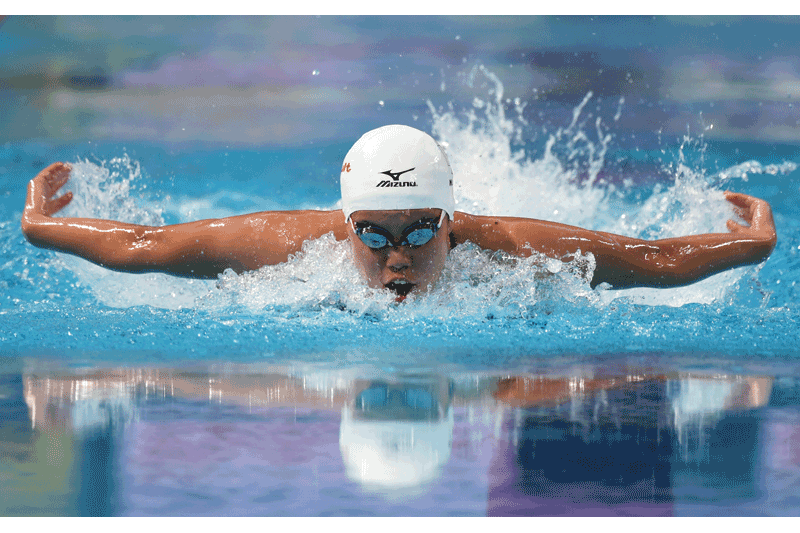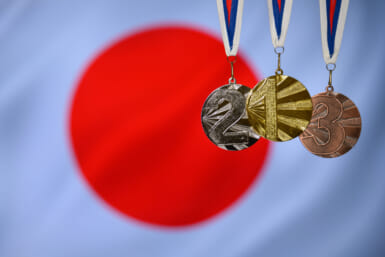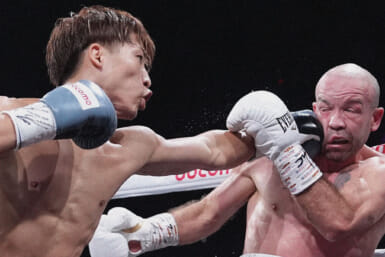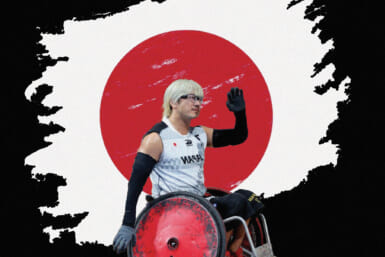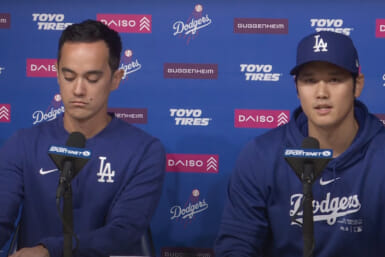Champion Natsumi Hoshi has already beaten back a disease that could have ruined her career. Now she’s preparing to swim for gold.
Swimmer Natsumi Hoshi was just 16 when she was diagnosed with Graves’ disease. An autoimmune disorder affecting the thyroid gland, it’s a debilitating illness that sapped her energy, weakened her muscles and turned a simple task like climbing the stairs into an arduous one.
For a young athlete with great potential it was a devastating blow, but rather than letting it get her down Hoshi fought back and within a year of the diagnosis had remarkably made the Japan team for the Beijing Olympics. Almost a decade later she is now a world champion in the 200 meter butterfly and goes to Rio this summer as one of her country’s top medal prospects.
Continuing our build up to the Games, Weekender recently met up with the 25 year old at the Japan Institute of Sports Science in Tokyo.
“My first interest in swimming came from watching my brother in the pool when I was two maybe,” she says with a smile. “At elementary school I didn’t win any big races or display real promise so my parents thought I’d eventually quit. I carried on, not because of an obvious talent, but because I loved the sport. That feeling grew even stronger after watching Ian Thorpe at the 2000 Sydney Olympics on TV and live at the 2002 Pan Pacific Championships in Yokohama.”
Inspired by the Australian, Hoshi’s times improved. She won two inter-prefectural high school championships, but something wasn’t right. Increasingly fatigued, she found training was becoming more difficult. “I went to see the doctor and he informed me that I had Graves’ disease,” she tells us. “I thought I’d have to quit swimming. I was often out of breath and couldn’t do any intense training. The medication I was on wasn’t making much of a difference and I could only do light exercise like walking in the pool.”
After two months she was given different medicine. Despite side effects such as cramping and weight gain, it seemed to do the trick. She grew stronger and was soon back to her best. She finished second in the 200 meter butterfly at the 2008 National Championships, which earned her a place at the Beijing Games. Considering she was still at high school and too exhausted to train a few months earlier, it was an incredible achievement just to be part of the Olympics, but Hoshi left China with regret.
“I underachieved,” she says. “I felt I could challenge, but I went out in the semis, which was bitterly disappointing. Although it was tough watching the final after that, it showed me the level I needed to be at, which gave me an extra desire to push on. I was determined not to be watching from the sidelines again in four years’ time.”
She wasn’t. Hoshi powered through the qualifying rounds at the London Games and was seen as a potential dark horse in the final. After a slow start, though, her prospects didn’t look good. The Waseda University student was well off the pace at the 100 meter stage. She recovered some ground over the next 50 meters and then in the home straight surged past pre-race favorite Kathleen Hersey. China’s Jiao Liuyang and Spain’s Mireia Belmonte were just out of reach, but Hoshi had done enough to claim a bronze.
“It was a bittersweet feeling afterwards,” she says. “I know how hard it is to win a medal at the Olympics so I was obviously pleased, yet at the same time my goal in London was to bring back the gold. I gave myself too much to do in the latter stages and that ultimately cost me.”
Hoshi once again left it late at last year’s World Championships in Kazan, Russia. Back in sixth place after the first lap, she slowly made up the ground before going in for the kill towards the end. “I felt in control throughout, but I was fortunate to win with a time of 2:05.56,” she says. “Belmonte and the two Chinese girls (Jiao Liuyang and Liu Zige) were missing and they’ll be back for Rio so I know I need to go much faster.”
Confident, yet at the same time cautious about her chances in Brazil, Hoshi believes a new Olympic record may be required to take home the gold. She tells me preparations are going well and the lethargy that has troubled her at meets down the years is now less of a problem since she had an operation to remove her thyroid gland towards the end of 2014. It’s helped to reduce stress levels, allowing her to focus more on swimming.
Around the time of the surgery she also began working with renowned coach Norimasa Hirai. He famously guided Kosuke Kitajima to double gold medals at the 2004 and 2008 Olympics. Prior to the Athens Games Brendan Hansen smashed the Japanese swimmer’s world record in the 100 meter breaststroke by 0.48 seconds and was seen as the favorite for the race. Hirai, however, felt the American had peaked too early and pushed his own pupil hard in the final weeks building up to the event—a time when most athletes are slowing down. The strategy paid off.
“It feels like there is some kind of magic in his words,” says Hoshi. “He’s really pinpoint in his advice and when you have a problem he seems to fix it. The way he helped me prepare for the Championships in Kazan was perfect.”
The coach isn’t the only influential person in Hoshi’s training sessions. She also gets inspiration from working with Kitajima and 2014 World Swimmer of the Year Kosuke Hagino. The three of them all contributed to Japan’s medal haul in London, which stood at 11. The question now is: can they improve on that in Rio? “I’m not sure,” says Hoshi. “To be honest while it’s great winning lots of medals, I think the type of medal is just as important. Last time we didn’t manage any golds and that is something we must rectify this summer. Hopefully I can contribute to that.”
Under the Surface
Japan has won a total of 73 Olympic medals in swimming including 20 golds. Eleven of those victories have come in either the 100m or 200m breaststroke. Kosuke Kitajima is the country’s most decorated Olympic swimmer with four titles to his name followed by Yoshiyuki Tsuruta who won two in the 200m Breaststroke. One of those success’ came at the 1932 Games in Los Angeles: Japan’s most successful Olympics in the pool when they got five golds in total. The last female to stand on top of the podium was Ai Shibata who won the 800m Freestyle in 2004.
Looking ahead to Rio Japan has a number of swimmers capable of adding to that list of 20. As well as Natsumi Hoshi there are two other reigning World Champions in the squad: Kanako Watanabe and Daiya Seto. Watanabe won a gold and silver in the 100m and 200m breaststroke races in Russia and will fancy her chances of a similar medal haul in Brazil. Seto will feature in the 200m butterfly and the 400m individual medley. He won the world title in the latter, but is likely to face tougher opposition in Rio. As well as a potential showdown with Ryan Lochte and Michael Phelps, there is also teammate Kosuke Hagino who missed out on last year’s world championships due to a fractured elbow. He will be racing in three individual events and the 4x200m freestyle relay this summer and is gunning for gold in all of them.
Another name to look out for is Rie Kaneto, who came within 0.54 seconds of the world record in the women’s 200m breaststroke at the Japan championships. Two of the most exciting names in the squad are Runa Imai and Rikako Ikee, both just 15 years of age. The latter will have a very busy summer having qualified in four events. They are not the youngest Japanese swimmers in the team, though. That honor belongs to 14 year old Natsumi Sakai who will compete in the 4x100m medley relay. At the other end of the spectrum 31 year old Takeshi Matsuda is set to take part in his fourth Olympics. He has a silver and two bronze medals to his name. Satomi Suzuki and Ryosuke Irie – who both won three medals in London – are once again expected to be among the leading contenders in their events.
In total the Japan Swimming Federation is sending a 34-member roster for the Games. It is the highest number since the Tokyo Olympics in 1964. This was achieved despite the ambitiously high qualifying standards set by the JSF in the hope of pushing their athletes during the trials. Kosuke Kitajima was the most high-profile casualty. The quadruple gold medalist finished fifth in the 200m breaststroke at the National Championships and subsequently fell short of the required qualifying time. He announced his retirement shortly after.
Main Image: Streeter Lecka/Getty Images

